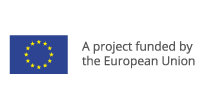Climate Finance
International commitments
A wide range of international commitments have been made on climate change. Enabling such commitments in the 2015 Agreement requires a "spectrum of cooperation" and country-specific support linked to the respective national climate policies.
Effective climate policies are linked to the overall development policies of each country. It is thus essential to ensure consistency and seek synergies between the various planning tools (National development plans and strategies, Low Emission and Climate Resilient Development Strategies ( LECRDS ), National Adaptation Plans ( NAPs ), and REDD+ strategies) and the respective national and international financing instruments.
EU-supported instruments
The EU has first-hand experience in climate and development policy making and implementation and in the design of financial instruments to mobilise private investment in low-emission climate resilient infrastructure. The main aim is to attract private investment in low-emission and climate resilient technologies. With effective national climate policies and enabling environments in place, financial instruments can speed up the transition to a low-emission and climate resilient development path.
The EU supports climate actions the in the Southern Neighbourhood through a variety of different instruments.
The EU supports programmes such as the “ClimaSouth Project” or the “Low-Emission Capacity Building" programme ( LECB ) which provide platforms for policy dialogue and capacity building in the host countries and regions.
The EU's Neighbourhood Investment Facility ( NIF ) also co-finances climate relevant investment projects. Since its launch in 2008, the NIF has approved more than 80 investment projects with a grant contribution from the EU budget of over €750 million, of which about 60% for climate relevant projects. The total investment volume of these projects amounted to more than €20 billion.
Finally, the European Investment Bank ( EIB ) promotes investments in the Mediterranean Partner Countries ( MPCs ) through the Facility for Euro-Mediterranean Investment and Partnership ( FEMIP ) with the objective to support the modernization and opening of economies in partner countries. This is achieved through: (i) investments to support the private sector and create an investment-friendly environment and (ii) dialogue between Euro-Mediterranean partners through an advisory governance structure ( FEMIP Ministerial meetings, FEMIP Committee meetings, FEMIP Conferences).
Key links
European Commission (DG CLIMA)
Organisation for Economic Co-operation and Development (OECD)



